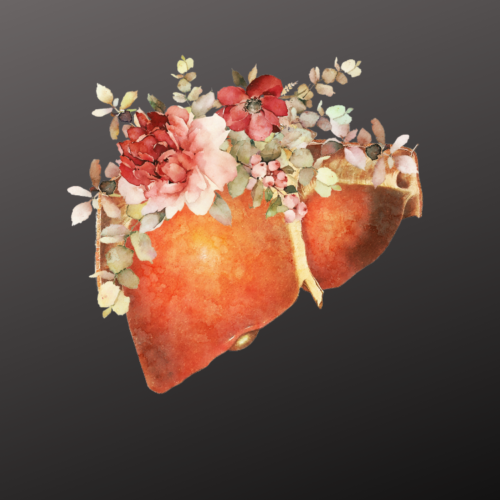What if changing your diet got rid of your melasma?
According to the Defining Melasma article, inflammation is a powerful component of melasma. Food helps us get micronutrients like vitamins, minerals, and antioxidants into our bodies. If we lack whole food nutrition, we will see outcomes like nutrient deficiencies, a sluggish detox system, and inflammation.
Eating for skin health also means knowing if you have food triggers, allergies, or histamine intolerance and knowing how to address them.
Eating for your skin isn't a diet; it's a lifestyle!
Instead, think of it as a reflection of your internal health. This is what Mind Body Beauty is all about. Eat clean foods, have clear skin, and reflect inner balance through our biggest organ, the skin itself.
Whole foods will wake up your organs, boost liver and gut function, and support hormonal regulation. Eating healthy is at the root of changing any health outcomes. Sometimes we forget how important this is, but diet makes up about 60% of your overall health. Your food is your medicine, and your medicine is your food.
We think that our genetics play a more important role than our diet and lifestyle, but genetics are only a tiny fraction of it. Genes turn on and off based on your lifestyle. This is due to something called epigenetics. If you eat a diet high in inflammatory foods, your genes change, and expressing negative genetic tendencies will become higher. You are not doomed to a disease or negative outcome because your family has a history of it. Diet makes up about 60-70% of your overall health outcome, and 20% of health outcomes are from genetic expression. Genetics don’t have to be a life sentence if you live a healthy lifestyle.
Whole organic foods and grass-fed meat.
So what are whole foods, and what does a whole food diet consist of? I am discussing mostly unprocessed foods like vegetables, fruits, nuts, grains, legumes, and meats when I say whole foods. In his book In Defense of Food, Michael Pollan says, “avoid products with five or more ingredients, especially if you’ve never heard of or can’t pronounce them.”

His instructions are simple, but following them in these days of convenience and factory farming isn’t necessarily easy. Another guideline he suggests is to eat foods that have ingredients that your great-grandparents would recognize. If the label is a string of hard-to-pronounce words that read like a science textbook, there’s a strong likelihood that those ingredients will not support a healthy immune system.
Society, culture, and the fast-paced, high-stress demands of a modern lifestyle heavily influence us to eat processed foods. The Food Industrial Complex spends many millions annually lobbying and marketing on behalf of processed, poisonous products.
Things like additives and preservatives in the food can slow down our ability to detox and receive the healing benefits of whole foods. In fact, eating a clean diet is the only way to detox your body truly. Your body is incredible, and it knows what to do, all it needs is the proper nutrition, and it will gracefully do its thing. Start by cutting out processed foods or packaged foods and dine out less to help kick-start your liver and digestive system.
Focus first on low inflammatory foods since melasma is a chronic inflammation disorder. Turning inflammation around is essential to reversing melasma or any other skin condition.
Eat organic & pasture-raised!
Eat organic! Organic foods are far healthier than conventional foods. They have higher antioxidant levels, lower heavy metal levels, and fewer pesticide residues. Organic fruits and vegetables even taste better. Organic foods are processed differently because they have to adhere to strict regulations around organic standards. Generally, because of stringent rules to maintain organic standards, even processed organic foods are healthier.
Grass-fed meat and pasture-raised poultry and pork are the highest quality meat you can consume. Grass-fed means that the cow only eats grass from fields, though sometimes it can mean it is fed straw, which is dried grass when winters cover pastures and prevent grazing. Pasture-raised means that the pig or the bird is allowed to graze outside and eat food natural to its diet. For example, birds eat insects in the field, and pigs forage on fallen nuts.
You can see that the type of veggies and meats you consume play an important role in inflammation and toxicity load. Therefore, changing these elements is essential to healing your skin and aging gracefully.Please note that pasture-raised/grass-fed is not the same as ‘free range’. Free-range is a technical term that means the animals are not sitting in a cage and are practically immobile. However, this term is still misleading because so-called ‘free range’ is often still quite dismal conditions with barely any space at all.

William Henry Davis, 1786-1865
Like organic and/or free-range meat, grass-fed and pasture-raised meats are not treated with antibiotics or hormones. What makes this meat even healthier is that it is not fed an unnatural diet of grain, which causes the fat content in the meat to become highly inflammatory. The healthiest animals eat what nature intended, and the health of the animals we eat translates directly to our overall health outcome. Grass-fed/pasture-raised meat has a balanced ratio of 3:1 omega 6 & omega 3; this is closer to the standard healthy diet guidelines. Veg-fed beef has a ratio of 13:1 omega-6 to 3. A diet high in omega-6 can contribute to an inflammatory response, a driving factor of chronic disease.
Swap your coffee for a matcha latte.
There is so much speculation and confusion around coffee and melasma, so let’s get to the bottom. Though coffee has a lot of incredible benefits, there are downsides to be aware of. Regular intake of coffee boosts GABA, serotonin, and acetylcholine, resulting in the elevated mood and uplifting energy that makes coffee beloved by so many (including me!). However, coffee metabolizes through the CYP1A2 enzyme pathway, the same pathway that estrogen metabolizes through. This is the Phase I liver detoxification pathway, and coffee could slow this pathway down if you are a carrier of the CYP1A2 variant. Coffee also increases ACTH which we also discussed in the Defining melasma article. Increased ACTH is associated with the release of melanocyte-stimulating hormone, precisely the hormone that contributes to hyperpigmentation or melasma. Coffee can also influence thyroid function by blocking thyroid uptake, so it might not be ideal for you if you have hypothyroidism or hypothyroid symptoms.
So will coffee cause melasma or hyperpigmentation? Probably not, but it may be a contributing factor for some. Focusing on balancing estrogen and cortisol is essential to reverse melasma and prevent skin disorders. Letting go of coffee will be a game-changer for your skin health.
Luckily, you can replace your coffee with tea, and you won’t feel bad about it because the benefits for your pigmentation are great. Tea comes from the Camellia Sinensis plant that grows in China. White, green, oolong, black and pu'erh tea all come from the same plant, but each has a different processing method giving its unique flavor and characteristics.

All teas from the Camellia Sinensis plant inhibit melanogenesis. Still, studies show fermented teas are the most effective at tyrosinase inhibition, and it assists in the turnover of pigmented skin cells. The polyphenol theaflavin gives oolong, black, and pu'erh tea these attributes, resulting from its fermentation process. All teas are vital natural antioxidants that scavenge free radicals in your body, and you can safely drink tea multiple times a day.
Teas from the Camellia sinensis plant have anti-inflammatory effects and can suppress gene expression, influencing outcomes like diabetes, cardiovascular disease, neurodegenerative disease, cancer, and obesity. Tea also can affect the gut microbiome by promoting healthy bacteria species and inhibiting unhealthy bacteria from colonizing.

As you can see, there are many reasons to change your wake-up routine from coffee to tea. Tea can benefit your skin and overall health tremendously through several different mechanisms. I even like to put some tea on a cotton pad and wipe my face while enjoying my morning routine. Tea supports both internal and external skin health.
I love teas of all kinds; I love a matcha latte, and I also love a good chai. Usually, I prefer freshly brewed chai, but I also keep powdered chai in the cupboard. I add lots of goodies to my chai, like collagen and mushroom extracts, with a splash of half & half. My absolute favorite tea is Pu-erh. I’ve been a long-devoted drinker for over 20 years. The earthy, rich, creamy flavor reminds me of coffee and still packs a punch. I keep oolong and white tea on hand for different times of the day, because each tea feels like it has its own unique energy. There are so many amazing teas that you can replace your coffee with, and your complexion will love you for it.
A couple of my favorite tea picks:
(Please purchase through my affiliate links. There's no extra cost to you, and it helps keep this project going so I can support more women on their healing journey)



Alcohol.
How does alcohol impact your health and hormones? We think that the liver is the only organ that suffers from alcohol intake, but unfortunately, it’s not. Alcohol wreaks havoc on many systems, including the gut, which is heavily impacted by alcohol consumption. Alcohol changes the microbial balance, increases intestinal permeability, increases gut inflammation, and influences hormonal balance, particularly estrogen. Moderate alcohol intake increases estrogen levels between 16 and 20% in women. This is a substantial amount and can seriously impact your estrogen levels. Alcohol also influences how your liver metabolizes estrogen and can slow down liver detoxification leading to increased circulating estrogens. These factors are incredibly influential to melasma and your overall skin health. Alcohol also removes moisture from your skin, depleting it of nutrients, causing wrinkles, dryness, and sagging skin. I hate to say this, but alcohol accelerates aging.
Letting go of alcohol was probably one of the most important things I could have done for my skin. I was a regular drinker, but I thought I was one of the “healthier drinkers.” I would only drink kombucha beer for a long time, and it even became my vice. However, I convinced myself that this type of alcohol derived from a healthy probiotic made it better for me. And maybe compared to other options, I was technically correct, but I struggled with balancing my estrogen levels. These days I still enjoy a drink or two on occasion, but not every day or even weekly.
I swapped my nightcap for electrolytes or rose essence. I like to replenish my system with proper hydration before bed so I can get better sleep and wake up with my skin replenished. I stick to electrolytes without sugar so I don't get a glucose spike at night.
MY PICS FOR HYDRATION:
(Please purchase through my affiliate links. There's no extra cost to you, and it helps keep this project going so I can support more women on their healing journey)



Histamine intolerance.
Histamine is another major contributor to melasma for some people and possibly a cause for a select few. Histamine has been shown to induce melanogenesis by mechanisms that aren’t entirely understood. Histamine intolerance is a pretty big subject, so I will have to break it down in another article. Histamine-like reactions include headaches, stuffy nose, and allergy-like symptoms, to name a few. Notice if you have reactions to eating foods like aged cheeses, fermented foods, alcohol, beans, tomatoes, bananas, dried fruits, avocados, spinach, eggplant, cured meats, shellfish, papaya, chocolate, wheat germ, citrus fruits, or nuts. If so, you may have a build-up of histamine in your body, and you should eliminate these foods. Regularly taking desiccated beef kidney will help by providing the DAO enzyme that assists in breaking down histamine. Histamine is a symptom of many possible causes, and finding that root cause will be a part of your healing journey. We will discuss the causes of histamine intolerance in future articles.
Eating for skin health.
As you can see, changing your diet can impact your skin health, particularly melasma. Eliminating inflammation through the diet is the fastest way to reset your system and bring you back into Mind Body Beauty balance.
Subscribe, so you can follow as we unfold the roadmap to healing melasma.
References
https://www.ncbi.nlm.nih.gov/pmc/articles/PMC5513683/
https://www.ncbi.nlm.nih.gov/pmc/articles/PMC2257922/
https://www.ncbi.nlm.nih.gov/pmc/articles/PMC6859183/
https://www.purdue.edu/uns/html4ever/020204.Watkins.paleo.html
https://www.ncbi.nlm.nih.gov/pmc/articles/PMC3834380/



Such great info! Thanks so much mama!
Hi darling,
Thank you so much! It’s nice to see you chiming in over here, thanks for taking the time to read it.
Love reading your updates. Look forward to more.